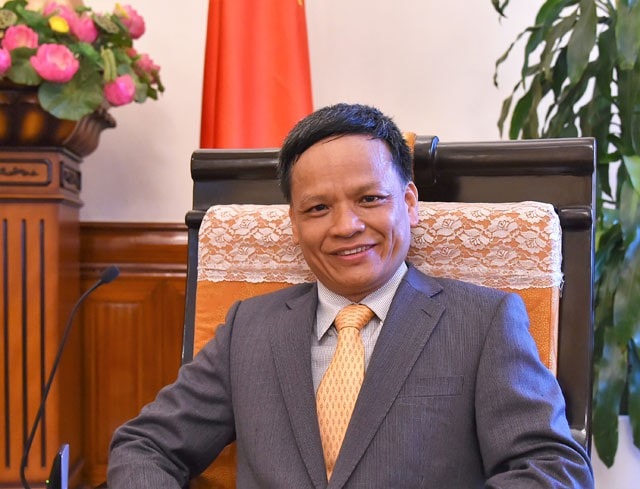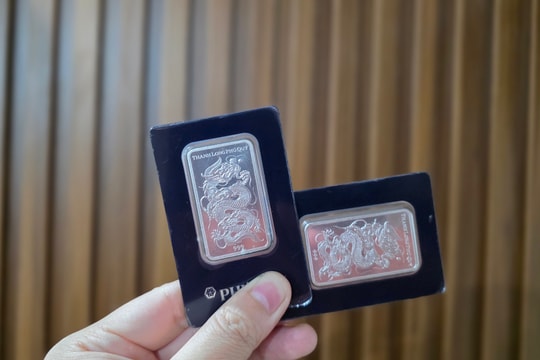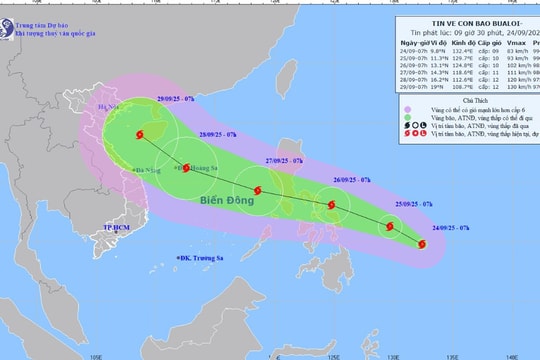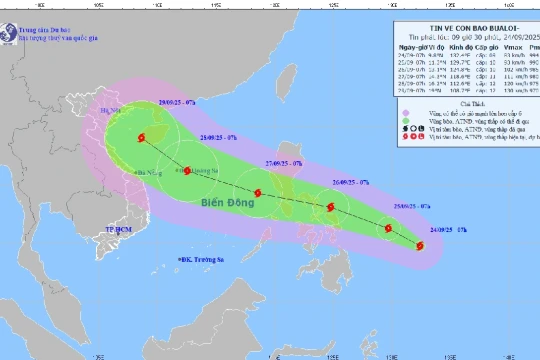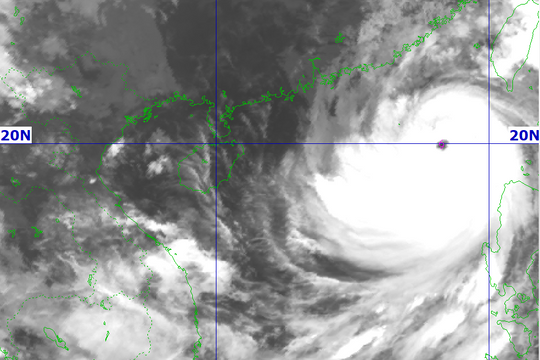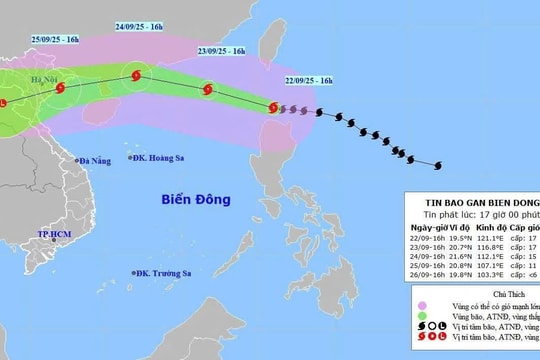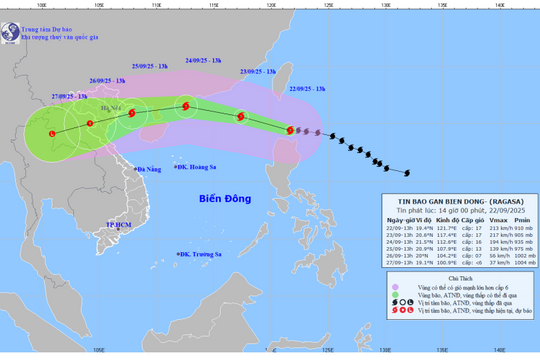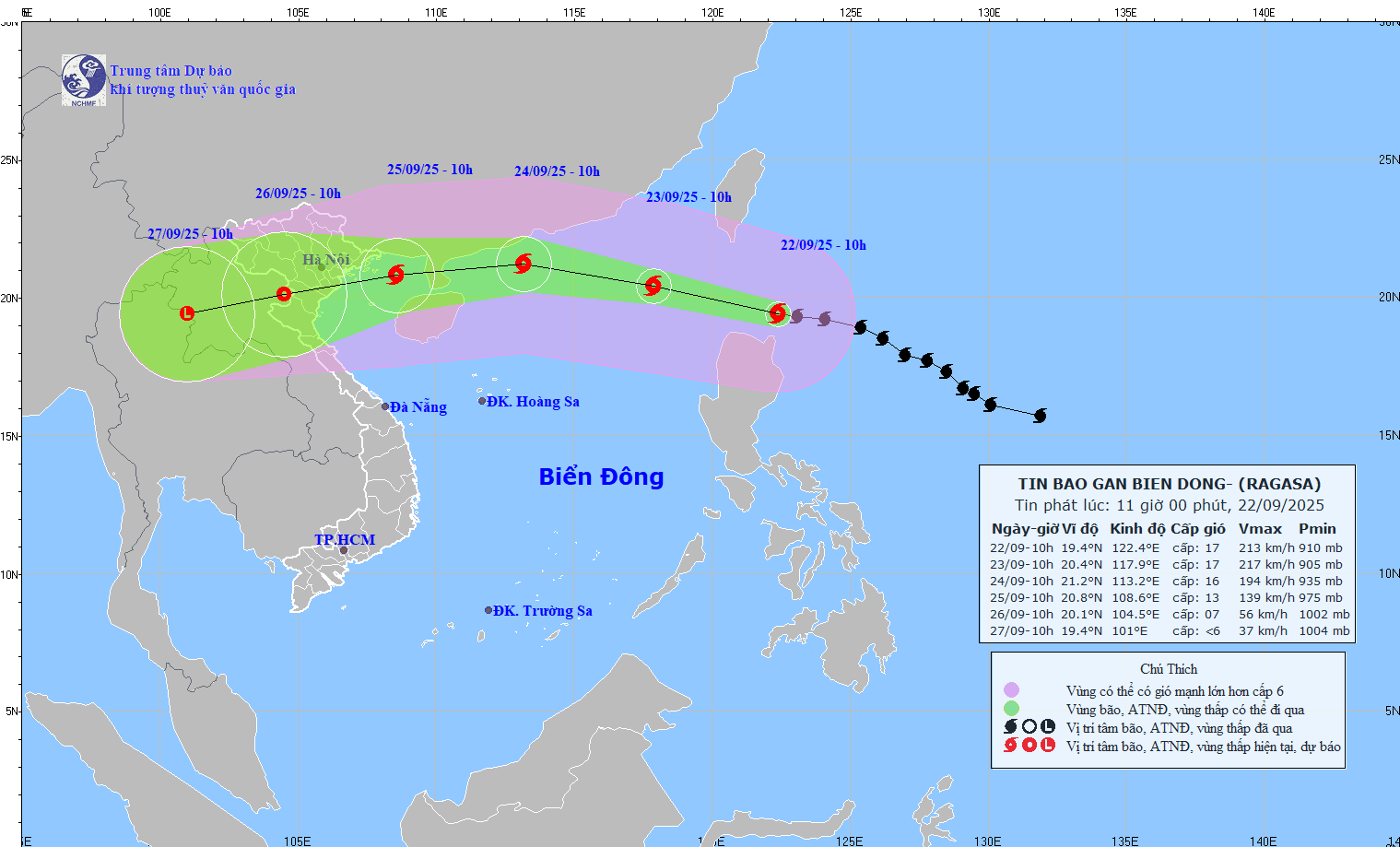Legal Expert: China's establishment of the so-called 'West Sands' and 'South Sands' is wrong
According to Associate Professor Dr. Nguyen Hong Thao, China's establishment of the so-called "West Sands" and "South Sands" is wrong, causing tension and affecting the COC negotiation process.
In an interview with VOV, Ambassador - Associate Professor Dr. Nguyen Hong Thao - an expert on international public law, environmental law, maritime law and border demarcation, said that the Chinese government's approval of the establishment of two districts, including Xisha (with the administration on Phu Lam) and Nansha (with the administration on Chu Thap Reef), to manage the Hoang Sa and Truong Sa archipelagos, which are under Vietnam's sovereignty, is a wrongful act, causing tension in the situation and affecting the negotiation process of the Code of Conduct in the East Sea (COC).
|
| Ambassador - Associate Professor, Dr. Nguyen Hong Thao. Photo: VNA. |
PV:According to information on China Global Television Network (CGTN), the Chinese Ministry of Civil Affairs announced on April 18 that the State Council of China recently approved the decision to establish the so-called "Xisha District" and "Nansha District" under "Sansha City", Hainan Province. What do you think about this move by China?
Associate Professor, Dr. Nguyen Hong Thao:In 2012, China established the so-called Sansha city to claim the right to manage the archipelagos (Sa) within the unreasonable nine-dash line in the East Sea, including the Hoang Sa and Truong Sa archipelagos under Vietnam's sovereignty.
After the 2016 ruling of the Arbitral Tribunal on the East Sea, to avoid using the name of the nine-dash line which was rejected by the Tribunal, China promoted the use of the name Tu Sa combined with ambiguous explanations of the sea areas under the Convention on the Law of the Sea and officially claimed it through a Note Verbale dated March 23, 2020 sent to the United Nations.
The decision to establish the “Xisha District” (Vietnam’s Hoang Sa archipelago) and the “Nansha District” (Vietnam’s Truong Sa archipelago) is a violation of Vietnam’s sovereignty, so on April 19, 2020, the spokesperson of the Vietnamese Ministry of Foreign Affairs, Le Thi Thu Hang, strongly protested. Vietnam has sufficient historical and legal evidence to affirm its sovereignty over the two archipelagos in accordance with international law.
This decision by China is to expand its presence and establish an administrative management system on the semi-submerged shoals that it has expanded into artificial islands with basic infrastructure since 2014. This is also to reject the ruling of the Arbitral Tribunal and restrict the freedom of navigation of ships of other countries in the East Sea. This is clearly a wrong move, causing tension in the situation, affecting the negotiation process of the Code of Conduct in the East Sea (COC). It is not excluded that China will next step to surround and force countries to withdraw from the islands and will legalize administrative boundaries at sea.
PV:In your opinion, is this part of China’s long-term strategy to realize its unreasonable sovereignty claims in the East Sea? Is there any connection between China taking this step when the Covid-19 pandemic is attracting international attention?
Associate Professor, Dr. Nguyen Hong Thao:This is a further step in a long-term strategy to turn the East Sea into a private lake in strategic competition with the US. This event occurred at a time when the international community was struggling with Covid-19. However, in my opinion, Covid-19 only facilitated China's activities and was not the main reason.
Compared to previous years, April is a time of calm waves and good weather, and China often increases its activities at sea. In 2014, April was the month of the Haiyang Shiyou 981 drilling rig and China's construction of artificial islands. In 2019, in May, Chinese ships were active, and the peak was in July when they penetrated deep into Vietnam's continental shelf.
If anything, in 2020 China deployed more vigorously, with more participating forces and a wider scope across the East Sea. From the Liaoning aircraft carrier in the Taiwan Strait entering the East Sea, the coast guard ship ramming a Vietnamese fishing boat in the Paracel Islands on April 2, 2020, surveying in the exclusive economic zone and continental shelf of Malaysia - Brunei and concentrating maritime militia in the South. Activities range from propaganda, administration, law to deterrence by force.
China this time seems to be more aggressive and ready to use force to force small countries to follow its will. In response to these moves, the US State Department has asked China to stop intimidating small countries in the East Sea.
PV:From an expert's perspective, how do you think Vietnam should react in the current situation?
Associate Professor, Dr. Nguyen Hong Thao:Vietnam is a peace-loving country, well aware of the price of war, but also ready to fight for independence, freedom and the preservation of territorial sovereignty, rights and legitimate interests in the East Sea. The Note Verbale dated March 30, 2020 and other statements of Vietnam always affirm that the 1982 United Nations Convention on the Law of the Sea (UNCLOS 1982) is the correct legal basis for resolving disputes in the East Sea.
Vietnam always fights with other countries to achieve a legally effective Code of Conduct in the East Sea, to prevent actions that disrespect international law and further complicate the situation.
Vietnam always calls on countries to cooperate and seek a peaceful, fundamental and long-term solution to the East Sea issue. On the other hand, Vietnam needs to be vigilant and step up the building of the country's economic and defense potential, ready for all possible situations.
PV:Thank you!./.
Major General Le Van Cuong: Need to be alert before developments in the East Sea
(Baonghean) - Public opinion at home and abroad has been closely following the situation in the East Sea in recent days, after information about the activities of the Chinese survey ship Haiyang 8 violating Vietnam's exclusive economic zone and continental shelf. Nghe An Newspaper respectfully introduces the content of an interview with Associate Professor, Dr. Major General Le Van Cuong - former Director of the Institute of Strategy and Science, Ministry of Public Security on this issue.

